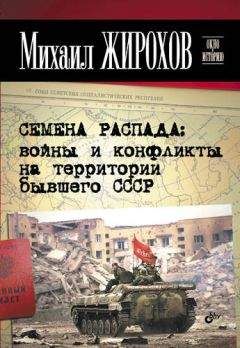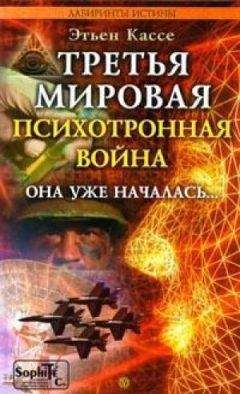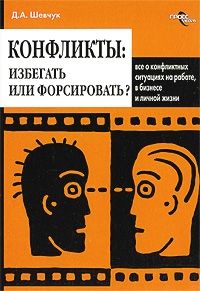Adam Makkai - Словарь американских идиом: 8000 единиц
[play] See: ALL WORK AND NO PLAY MAKES JACK A DULL BOY, DOUBLE PLAY, FAIR PLAY, FORCE PLAY, GAME AT WHICH TWO CAN PLAY, MAKE A PLAY FOR, TURN ABOUT IS FAIR PLAY.
[play along (with)]{v.} Cooperate; make no trouble. •/The honest jockey refused to play along with the bookmaker’s illegal plan./
[play a part in]{v. phr.} To be instrumental in; have a role in; be concerned with. •/Some First Ladies play a greater part in political life than others./
[play around] See: FOOL AROUND.
[play around with] See: TOY WITH.
[play a waiting game]{v. phr.} To withhold action until one’s chances for success improve. •/Ray would like to be vice president of the company so he is playing a waiting game in the hope that the president will soon recognize his abilities./
[play ball]{v. phr.} 1. To begin play in a ball game. •/When the umpire calls "Play ball," the game begins./ 2. {informal} To join in an effort with others; cooperate. •/To get along during Prohibition, many men felt that they had to play ball with gangsters./ •/A is often good business to play ball with a political machine./
[play by ear]{v. phr.} 1. To play a musical instrument by remembering the tune, not by reading music. •/Mary does not know how to read music. She plays the piano by ear./ •/Joe doesn’t need any music sheets when he plays his guitar; he knows many songs well and can play them by ear./ 2. {informal} To decide what to do as you go along; to fit the situation. — Used with "it". •/John decided to play it by ear when he went for his interview./ •/It was her first job and she didn’t know what to expect, so we had to play it by ear./
[play cat and mouse with]{v. phr.} To tease or fool (someone) by pretending to let him go free and then catching him again. •/Joe’s uncle had fun playing cat and mouse with him./ •/The policeman decided to play cat and mouse when he saw the woman steal the dress in the store./
[play down]{v.} To give less emphasis to; make (something) seem less important; divert attention from; draw notice away from. •/The newspaper stories played down the actor’s unattractive past./ •/A salesman’s job is to emphasize the good points of his merchandise; he must play down any faults it has./
[played out]{adj. phr.} Tired out; worn out; finished; exhausted. •/It had been a hard day, and by night he was played out./ •/For a while, at least, it seemed the interest in great speed was played out./ Compare: ALL IN.
[play fair]{v. phr.} To do what is right to others; act in a fair and truthful way. •/The boys like the principal because he always plays fair./ •/Mary would not date any other boys while Jim, her favorite boyfriend, was away; she said that would not be playing fair./
[play fast and loose]{v. phr.} To do as you please without caring what will happen to other people; act so carelessly or unfairly that people cannot depend on you; be very unreliable. •/He played fast and loose with the girl’s affections./ •/He played fast and loose with the company’s good name./
[play footsie]{v. phr.}, {slang}, {informal} 1. Touch the feet of a member of the opposite sex under the table as an act of flirtation. •/Have you at least played footsie with her?/ 2. To engage in any sort of flirtation or collaboration, especially in a political situation. •/The mayor was suspected of playing footsie with the Syndicate./
[play for keeps]{v. phr.} To take an action of finality and irreversibility. •/"Are you serious about me?" she asked. "Yes," he replied. "I want to marry you. I play for keeps."/
[play hard to get]{v. phr.} To act as if one weren’t interested; be fickle; be coy. •/"Professor Brown is playing very hard to get," our dean said, "but I know he will accept our offer and come to teach here."/
[play havoc with] or [raise havoc with] {v. phr.} To cause destruction; ruin; injure badly. •/The storm played havoc with the apple orchard./ •/When Ralph was arrested for stealing the car, it played havoc with his plans for going to college./ •/When Mr. White poisoned the cat, it played havoc with his reputation in the neighborhood./
[play hooky]{v. phr.}, {informal} To stay out of school to play. •/Carl is failing in school because he has played hooky so many times during the year./
[play into one’s hands]{v. phr.} To be or do something that another person can use against you; help an opponent against yourself. •/In the basketball game, Jerry’s foul played into the opponents' hands./ •/Mary and Bobby both wanted the last piece of cake, but Bobby played into Mary’s hands by trying to grab it./
[play off]{v.} 1. To match opposing persons, forces, or interests so that they balance each other. •/The girl played off her admirers against each other./ •/Britain tried to play off European nations against each other so that she would have a balance of power./ 2. To finish the playing of (an interrupted contest.) •/The visitors came back the next Saturday to play off the game stopped by rain./ 3. To settle (a tie score) between contestants by more play. /When each player had won two matches, the championship was decided by playing off the tie./
[play on] or [play upon] {v.} 1. To cause an effect on; influence. •/A heavy diet of television drama played on his feelings./ 2. To work upon for a planned effect; excite to a desired action by cunning plans; manage. •/The makeup salesman played on the woman’s wish to look beautiful./ •/In some places, leaders play upon people’s superstitious fears./ •/He played on the man’s ambition and love of honor./
[play one false]{v. phr.}, {literary} To act disloyally toward (a person); betray; cheat; deceive. •/Good faith was not in him: he played anyone false who trusted him./ •/His hopes had played him false./
[play one for]{v.}, {informal} To treat (someone) as; act toward (someone) as; handle (someone) as; handle as. •/He played the man for a sucker./
[play one’s cards right] or [play one’s cards well] {v. phr.}, {informal} To use abilities and opportunities so as to be successful; act cleverly; make the best use of your place or skills. •/That millionaire started with very little but showed a skill in playing his cards right./ •/People liked Harold, and he played his cards well — and soon he began to get ahead rapidly./
[play ostrich]{v. phr.} To refuse to face painful facts or unpleasant truths. •/She plays ostrich when it comes to her husband’s drinking problem./
[play politics]{v. phr.} To make secret agreements for your own gain; handle different groups for your own advantage. •/In order to get elected, he had to play politics with both the unions and the bosses./ •/Mary always gets what she wants by playing office politics./
[play possum]{v. phr.}, {informal} 1. To pretend to be asleep. •/Johnny seemed to be fully asleep, but his mother knew that he was playing possum./ 2. To stay quiet for self-protection; try to escape attention by inactivity. •/The rabbit played possum under the bushes, hoping the hunter would not see him./ •/Bob played possum when the teacher looked around./
[play safe] or [play it safe] {v. phr.}, {informal} To be very careful; accept small gains or none to avoid loss; avoid danger for the sake of safety. •/He got tired as the game went on, and began to play safe./ •/Tom didn’t know what the other driver would do, so he played it safe and stopped his own car./
[play second fiddle]{v. phr.}, {informal} To act a smaller part; follow another’s lead; be less noticed. •/His wife had the stronger mind and he played second fiddle to her./ •/During the tournament, lessons played second fiddle to basketball./
[play the devil with] or [play hob with] {v. phr.}, {informal} To cause confusion in; upset. •/Uncle Bob’s unexpected visit played the devil with our own plans to travel./ •/Mother’s illness played hob with our party./
[play the field]{v. phr.}, {informal} To date many different people; not always have dates with the same person. •/Al had a steady girlfriend, but John was playing the field./ •/Jim was crazy about Mary, but she was still playing the field./ Contrast: GO STEADY.
[play the game]{v. phr.}, {informal} To obey the rules; do right; act fairly. •/"That’s not playing the game," we told him when he wanted to desert his wife./ •/"Oh, let’s play the game," he said, when his partner suggested a way to keep from paying some of their debts./ •/Your parents want you to play the game in life./
[play the market]{v. phr.} To try to make money on the stock market by buying and selling stocks, •/John lost all his savings playing the market./ •/Sometimes Mr. Smith makes a lot of money when he plays the market, and sometimes he loses./
[play to the gallery]{v. phr.} To try to get the approval of the audience. •/Whenever John recites in class he seems to be playing to the gallery./ •/The lawyer for the defense was more interested in playing to the gallery than in winning the case./ Compare: SHOW OFF.
[play tricks on]{v. phr.} To make another the victim of some trick or joke. •/Al got angry when his classmates played a trick on him by hiding his clothes while he was swimming./
[play up]{v.} To call attention to; talk more about; emphasize. •/The coach played up the possibilities, and kept our minds off our weaknesses./ •/The director played up the woman’s glamor to conceal her lack of acting ability./
[play upon] See: PLAY ON.
[play up to]{v. phr.}. {slang} 1. To try to gain the favor of, especially for selfish reasons; act to win the approval of; try to please. •/He played up to the boss./ 2. To use (something) to gain an end; to attend to (a weakness). •/He played up to the old lady’s vanity to get her support./
[play with fire]{v. phr.} To put oneself in danger; to take risks. •/Leaving your door unlocked in New York City is playing with fire./ •/The doctor told Mr. Smith that he must watch his diet if he doesn’t want to play with fire./ Compare: SKATE ON THIN ICE.
[plough] or [plow through] {v. phr.} Pass through laboriously. •/Saw had to plough through hundreds of pages of American history to get ready for his test./
[plow] See: PUT ONE’S HAND TO THE PLOW.
[plow into]{v.} 1. To attack vigorously. •/He plowed into his work and finished it in a few hours./ 2. To crash into with force. •/A truck plowed into my car and smashed the fender./
[pluck up]{v.} 1. To have (courage) by your own effort; make yourself have (courage). •/In spite of failure, he plucked up heart to continue./ •/He plucked up courage when he saw a glimmer of hope./ 2. To become happier; feel better; cheer up. •/He plucked up when his wife recovered./
[pluck up one’s courage] See: SCREW UP ONE’S COURAGE.
[plug away] See: PEG AWAY.
[plug in]{v. phr.} To connect (an electrical appliance) to a power wire by putting its plug into a receptacle or hole. •/The integrated circuit has multiplied the number of small radios that need not be plugged in./
[plug into]{v.} To connect (an electrical appliance) to a power wire by inserting its plug into a receptacle or hole. •/He thought he had left the lamp plugged into the wall, and so was puzzled when it wouldn’t light that night./
[plume oneself]{v. phr.}, {literary} To be proud of yourself; boast. •/He plumed himself on having the belle of the ball as his date./ •/He plumed himself on his successful planning in the election./ •/She plumed herself on the grace with which she sat on a horse./ Compare: PRIDE ONESELF.
[plunk down]{v.}, {informal} 1. To drop down; fall. •/After walking a mile we plunked down on a bench to rest./ 2. To drop something noisily or firmly. •/He plunked the heavy suitcase down at the station./ 3. To pay out, primarily an excessive amount •/I had to plunk down $55 for a concert ticket./



